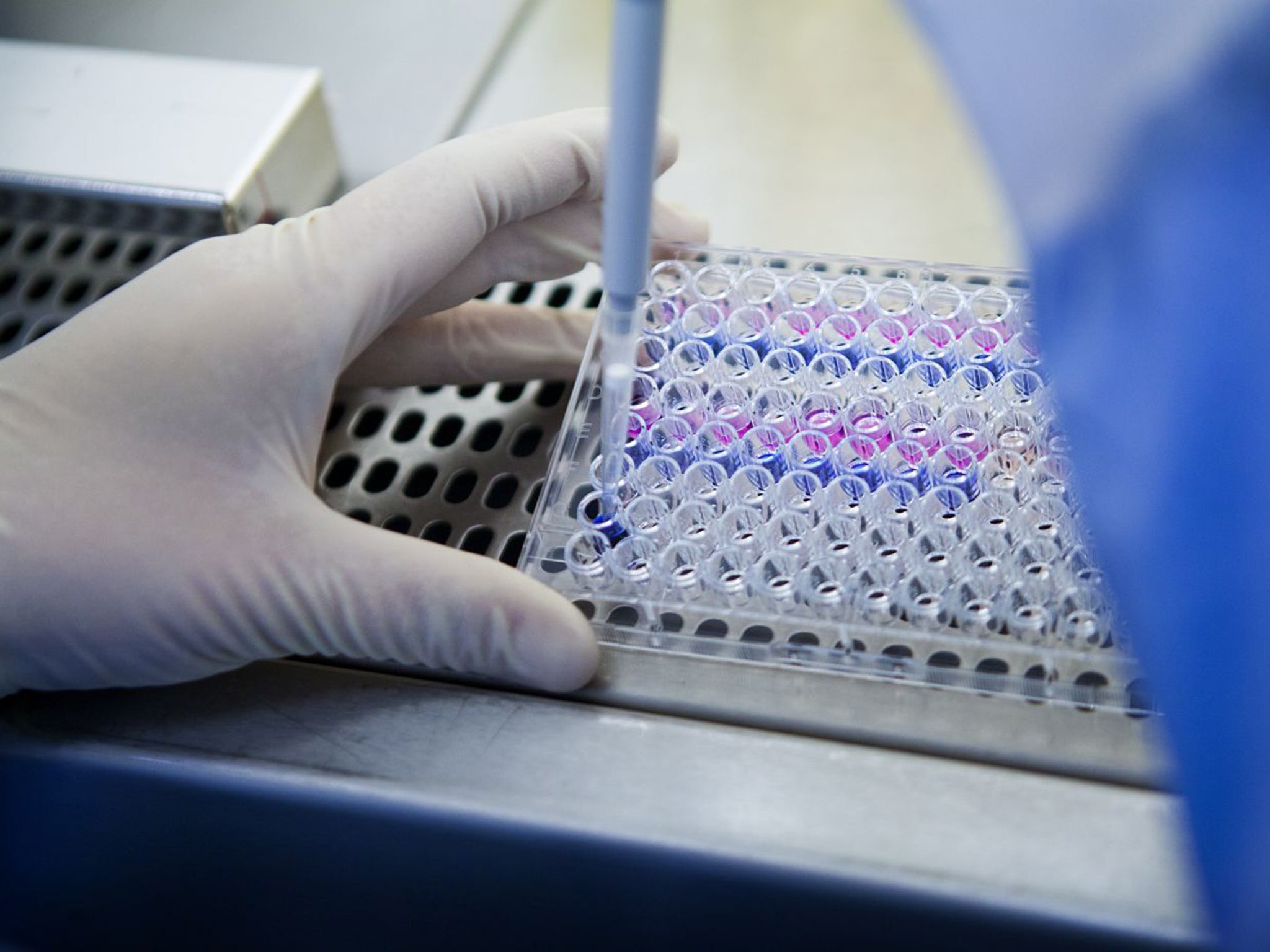T-cell therapy: Have we just discovered a cure for cancer?
The big question: How much closer does this get us to a cure, and is one even possible?

Your support helps us to tell the story
From reproductive rights to climate change to Big Tech, The Independent is on the ground when the story is developing. Whether it's investigating the financials of Elon Musk's pro-Trump PAC or producing our latest documentary, 'The A Word', which shines a light on the American women fighting for reproductive rights, we know how important it is to parse out the facts from the messaging.
At such a critical moment in US history, we need reporters on the ground. Your donation allows us to keep sending journalists to speak to both sides of the story.
The Independent is trusted by Americans across the entire political spectrum. And unlike many other quality news outlets, we choose not to lock Americans out of our reporting and analysis with paywalls. We believe quality journalism should be available to everyone, paid for by those who can afford it.
Your support makes all the difference.A new treatment for cancer has been held as a potential “cure” — but is that true?
A cure for cancer is often held as the ultimate achievement of medical science, and science of any kind. But any meaningful cure is likely to come slowly and in patches, and a complete cure might never arrive at all.
But the new results are a “paradigm shift”, according to the lead scientist on the paper. The work has been called unprecedented in its hugely successful results, which has had a huge impact on those patients with specific kinds of cancer.
Why are we asking this now?
Potential cures for cancer are regularly reported. But it's rare that one has such a clear and apparently powerful effect.
The new research potentially confirms a new form of therapy for cancer, to sit alongside chemo- and radio-therapy. And with development it may become a way of almost completely removing certain kinds of cancer.
How does it work?
The treatment works by using special methods to get around the tricks that cancer cells have to avoid them being spotted by the body’s immune system.
The treatment works through a process of genetic modification. Doctors take white blood cells or T-cells out of patients suffering a particular kind of leukaemia, genetically modify them to target cancer, and then inject them back into the body.
How successful is it?
In some cases, it’s extraordinary.
During one study, 94 per cent of patients with acute lymphoblastic leukaemia (ALL) saw their symptoms completely vanish. In another, patients with other blood cancers saw 80 per cent response rates, and more than half went into complete remission.
Lead scientist professor Stanley Riddell said that those results were “extraordinary”.
“This is unprecedented in medicine to be honest, to get response rates in this range in these very advanced patients,” he said.
Are there any downsides?
In a small number of patients, the treatment has led to an immune response that is too powerful and leads to the people becoming seriously ill. Seven of those in the study had to go into intensive care, and two died.
Scientists hope that the risks of such a response can be reduced with further work.
Why isn’t it a cure?
Even in those situations where it does work, people sometimes relapse. That means that it is a treatment, rather than a cure — but with work the return of the cancer could be staved off or even prevented.
At the moment, it has only been tried on those with “liquid” blood cancers. It might not be possible that the same techniques would work on solid tumours.
If it’s not a cure, what is it?
Those working on the study described it as a “pillar” of treatment. For the moment at least it is likely to be similar to chemotherapy and radiotherapy — a specific type of treatment for a specific type of cancer, but one that could save huge numbers of lives.
Join our commenting forum
Join thought-provoking conversations, follow other Independent readers and see their replies
Comments